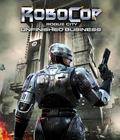It's a bit difficult to discuss Cyberpunk 2077: Phantom Liberty DLC without at least touching on Cyberpunk 2.0, the free massive update that comes alongside it. Cyberpunk 2.0 is a massive update to the gameplay of the original release, and it tries to fix a number of the complaints and problems with the original version. It's not quite a full relaunch, but it fleshes out, adjusts, and adapts a number of the game's systems.
Skill trees have been completely redone, so each unlocked skill feels bigger and more significant. This means that some skills have been nerfed largely in the service of making them feel more active. For example, netrunning skills now require more effort to use, and your RAM limits are much higher. Players who invest in the Intelligence tree get a bunch of ways to improve through player action, such as the Monowire weapon replenishing RAM on every hit. Quickhacks are still powerful, and you can still wreck enemies with them, but you're encouraged to engage with foes instead of sitting outside and slowly picking them off.
Likewise, Cyberwear has received a significant upgrade. There's now a limit to how much Cyberwear you can use at once, with higher-power Cyberwear taking up more space. You can increase this limit with skills or by leveling, but it means that you need to pick and choose what you want to focus on. This is technically a nerf, but it makes Cyberwear feel like something that influences your character, so you can be more thoughtful about it. Likewise, Cyberwear is how you get armor, since almost all clothing is now cosmetic. (Some clothing offers extremely small stat boosts, but it's rare.)
Probably the most overlooked but biggest change is the healing system. Gone are consumable healing items. Instead, you have two charges of healing that replenish naturally over time, as well as incredibly fast health regeneration once you're out of combat. This means you'll almost always be at full health going into a fight, but you can't sit there and face-tank damage while chugging healing potions; the game rewards the use of cover or discretion.
I am a bit mixed on this DLC. From a gameplay standpoint, it is awesome. It feels more reasonable to get in close on enemies since there's no long-term loss of resources, and balancing your health usage adds some tension to combat scenarios. However, it also messes with the balance of the game areas that aren't designed for it. Health boxes are practically useless, since it feels like a minor inconvenience to fall from the rooftop or hit a mine. I don't mind being able to take the short way down from a rooftop, but it means that V feels more like a superhero than they did before.
There are a lot of other small and large changes to the gameplay. Crafting is now universal and available to any character regardless of build, the police now function on a Grand Theft Auto-style "Star" system, and more. It's too much to go into in this review, but every change felt like it was for the best and made the game more fun. I don't think Cyberpunk 2.0 will change your mind if you didn't enjoy the original release, but it does improve the entire experience.
Phantom Liberty is a brand-new storyline that focuses on Dogtown, a personal fiefdom of a former soldier named Kurt Hansen. V gets involved with Dogtown when they get a call from a mysterious hacker named Songbird, who promises a solution to the whole "Relic in your head killing you" problem — but at a significant cost. The President of the NUSA has crash-landed in Dogtown, and now it's up to V to pull a Snake Plissken and help her escape. Their only support will be Songbird and a former government secret agent named Solomon Reed.
Phantom Liberty functions almost like an alternate second half to the game. When you begin, you can follow the path all the way to the final credits. This doesn't force you onto the path, and you can do all of Phantom Liberty and then return to the main story with the rewards intact. This means the game has new outcomes. It's a bit difficult to discuss without spoiling the game, but at the very least, the new ending that I saw was a significant departure from the original story. It has a different focus, with a much heavier emphasis on V than on Johnny Silverhand, and I preferred it to most of the endings that I had encountered in the main story. It's not necessarily a better ending, but it was longer and more in-depth, and it provides more ideas about what happened in the future for V and their allies.
The storyline missions are easily some of the most enjoyable and engaging in the game. Phantom Liberty puts a lot of effort into making each one feel lengthy, distinct, and cool, and more often than not, it succeeds. One mission might have you teaming up with Idris Elba's Reed to sneak James Bond-style into a crowded casino, while another has you taking on the guise of two spies and trying not to get caught. My personal favorite is a very lengthy sequence where the game becomes a full-fledged Alien: Isolation survival horror sequence; it features such fantastic tension and atmosphere that it makes me want to see an entire horror game from the developers.
Phantom Liberty's missions are superb. They are relatively linear in a way that doesn't feel linear, and it makes you feel like you're engaged and involved. I'm curious to see what sort of variations that players will find in the weeks to come, but in a single playthrough, I had an absurd amount of fun.
A big part of this is Elba, who absolutely knocks it out of the park as Solomon Reed. He never comes across as a celebrity casting, and he takes to the role even better than Keanu Reeves' Silverhand. He comes across as dangerous, empathetic, trustworthy, suspicious, and likable all at the same time. Most of the cast of Phantom Liberty does a great job, but Hansen feels a bit too cliché and unmemorable for my tastes. Based on the merit of its main storyline, Phantom Liberty could've been its own stand-alone game.
Dogtown is not a particularly huge location, and it's kind of rolled into Pacifica. It is nicely dense, so there's a lot of content in a small area, and it makes it rather fun to explore since there's much less dead space. There are plenty of new side-quests and missions to complete, which makes it feel worthwhile. It's also naturally integrated into the story, so it doesn't run into the problem that some DLCs have of feeling divorced from everything. Once Dogtown is added, it feels as much a part of the world as the rest of Night City.
A new area is populated by a lot of new weapons and items. A lot of these are revamped or redone versions of existing weapons or items, but there are some particularly cool ones. The main story quest guides you toward most of the unique items, which includes what is perhaps my new favorite weapon in the game. It's a ridiculously oversized sniper rifle that was originally designed to be mounted on a platform, and it can shoot through walls and allows you to pick off stubborn enemies with ease.
There's also a new set of skills tied to the new "Relic" skill tree. This new tree is both cool and disappointing. Relic skills are a series of special upgrades that significantly boosts the power of arm-mounted Cyberwear, and it helps you find weak points on enemies that explode upon damage, and you can use stealth camo mid-combat. You'll unlock them as soon as you start the questline to enter Dogtown, and you can further upgrade them by finding hidden caches throughout Dogtown to unlock Relic Points, which are used in place of Perk Points.
These new skills can alter how you approach things. Monowire allows you to attach one Quickhack to it, which can be used for free by charging up and attacking enemies. This allows you to attach effects like Disable Weapons or Blind to enemies without using up precious RAM. Mantis Blades get powerful mobility options, Gorilla Arms can ground pound, and Projectile Launcher turns into a shotgun launcher. The weak point option means that there are reasons to target locations besides the enemy's head, and it serves as a soft buff to Smart Weapons, so they will target those, too. Of course, being able to cloak mid-combat means that stealth becomes a lot more viable as a long-term option in combat.
However, the Relic skill tree is extremely straightforward and boring. You invest points into the Arm Cyberwear weapon of your choice and fill out the other two choices. There isn't much to it, and it feels a lot like stuff that should've been in the other 2.0 skill trees but was pulled out so that buying the DLC felt more necessary. There are certain skills and abilities in the non-DLC trees that seem tailored to work with DLC skills. It isn't the end of the world, and you don't strictly need those skills to feel powerful, but it doesn't feel like it is a worthwhile addition to the DLC when the new revamped skill system is already coming out alongside Phantom Liberty.
There's also the new car combat system, of which certain options are only available in Dogtown, but this feels like something you can skip. Being able to use your gun (or car-mounted weapons) is a neat addition in theory, but I basically never touched it. Cyberpunk 2077's super slippery driving physics made it a nightmare to do anything without using a time-slow option, and none of the missions demanded it. There's only one mission, and you could just as easily hoof it and have an easier time than driving.
At the end of the day, Cyberpunk 2077: Phantom Liberty DLC probably won't change your mind if you just disliked the base game. If you even remotely enjoyed the original, then Phantom Liberty is an excellent DLC. It contains some of the best story missions, a host of cool new weapons, and a lot of time with Elba. The fact it carries over into the main story and offers a completely different endgame path is also very cool and means that it's a worthwhile experience — even for those who have seen everything the original has to offer.
Score: 9.0/10
More articles about Cyberpunk 2077











 Cyberpunk 2077 is a narrative-driven, open world RPG set in the most vibrant and dangerous metropolis of the future — Night City.
Cyberpunk 2077 is a narrative-driven, open world RPG set in the most vibrant and dangerous metropolis of the future — Night City.




